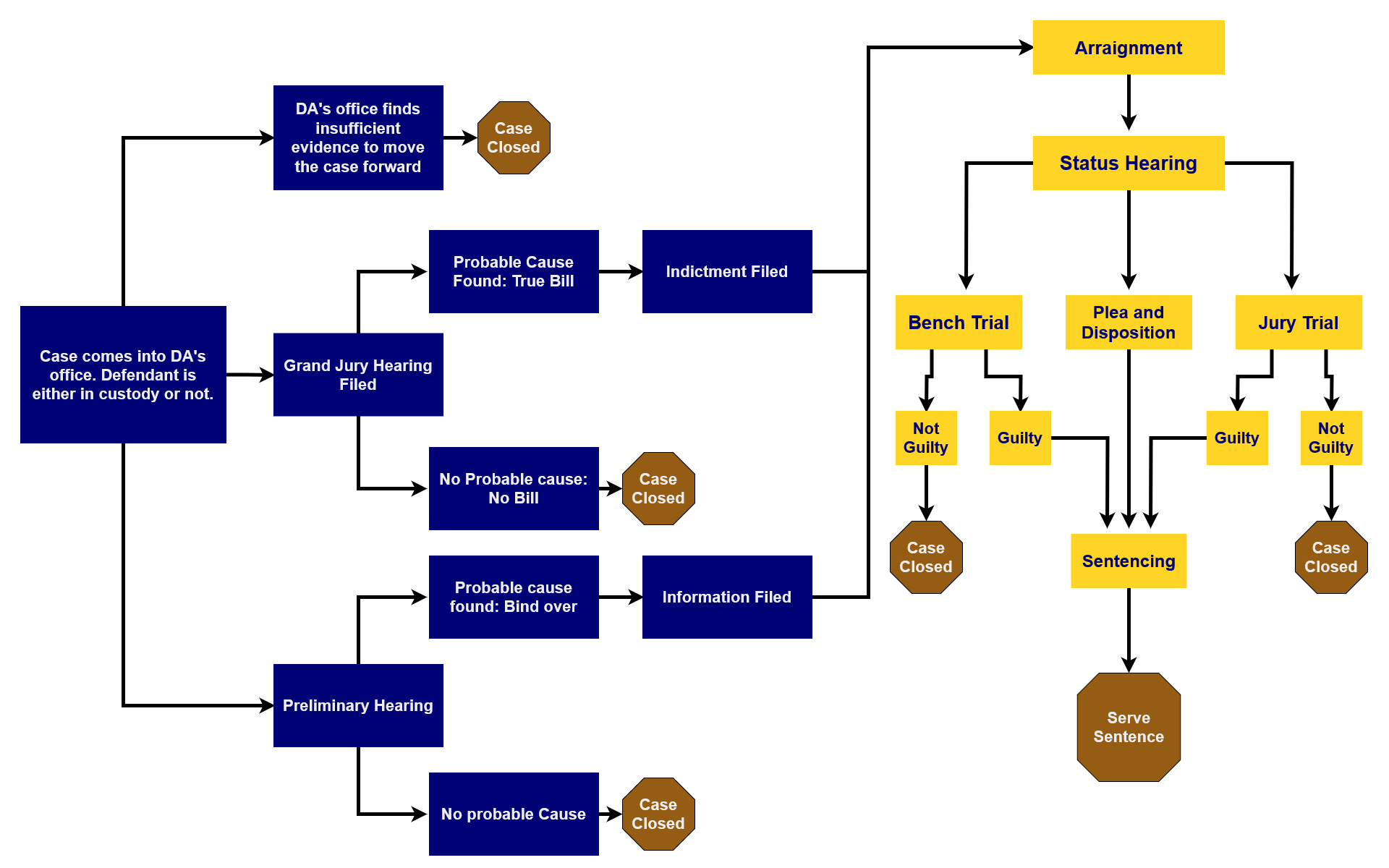Navigating the System
The process below is the typical flow of an adult felony case. For more specifics, please contact your attorney.
Navigating The System
Click on on the graphic to learn more about the different steps of the legal system - keep in mind, this is the process for adult cases only.

Case Begins
Typically, a crime is reported to law enforcement followed by investigation and arrest. Then, a criminal complaint is filed if probable cause was determined.
Preliminary Hearing
A hearing to determine if there is sufficient evidence to prosecute an accused person. Preliminary Hearings happen within 10 days after first appearance if in custody; within 60 days if out of custody - Rule 7-202(A)(1).
Grand Jury Hearing
A group of citizens determine whether criminal charges should be brought. Required notice before the hearing is 10 business days, if incarcerated it is 4 business days. Rule 5-302A(A)(2) (C)
No Probable Cause
No sufficient reason based upon known facts to believe a crime has been committed or certain property is connected to the crime
Probable Cause Found; Bind Over
Sufficient reason based upon known facts to believe a crime has been committed. Bind-over usually refers to the action in which an accused is held for trial following a preliminary hearing in a criminal case. A bind-over order transfers a case from Metro Court to District Court for prosecution.
Probable Cause; True Bill
Sufficient reason based upon known facts to believe a crime has been committed.
No Probable Cause; No Bill
No sufficient reason based upon known facts to believe a crime has been committed.
Information Filed
A formal criminal charge which begins a criminal proceeding in the courts. Information must be filed within 30 days after completion of preliminary hearing. Rule 5-201(C)
Indictment Filed
A formal accusation against an individual suspected of committing a crime. There is no time limit to file an indictment.
Arraignment
Initial step in a criminal prosecution whereby the defendant is brought before the court to hear charges and enter a plea. Initial disclosure by State at arraignment or within 5 days of written waiver of arraignment & within 5 days of receipt thereafter. Rule LR2-308(B)(1)
Arraignment must be within 15 days after filing of information or indictment, or date of arrest, whichever is later.
Status Hearings
A hearing to review the status of the case and determine appropriate track. If assigned to track 1, trial must commence within 210 days, if assigned to track 2, trial must commence within 300 days, and if assigned to track 3, trial must commence within 455 days, Rule LR2-308(F). A status hearing must be completed 30 days after arraignment.
Jury Trial
Trial of matter of cause before a jury as opposed to trial before a judge. Witness interviews must be completed in 60 days for track 1, 75 days for track 2, and 100 days for track 3 before trial, LR2-308 (F).
Plea & Disposition
The agreement in which the defendant is pleading to, or the prosecutor is dismissing counts, within either a single case or multiple cases. It must be filed no later than 10 days prior to the trial date. Applies to all tracks Rule LR2-308(F).
Bench Trial
Trial held before a judge sitting without a jury where a judge will determine verdict.
